Industry 4.0 is powered by advanced digital technologies such as artificial intelligence, augmented reality, IoT, and Smart Factories that drive the gathering of incredible amounts of real-time data and big-data analytics. And at the core, Industry 4.0 is powered by mobile.
Samsung executive Josh Gibson, in a blog post, describes the important cloud technologies that are transforming manufacturing and concludes and describes – “Forward-thinking manufacturing companies are using mobile devices as the platforms through which plant management and workers can easily connect and communicate with these cloud technologies — and at scale — to create an agile, responsive and truly collaborative environment.”
Mobile technology is an essential part of the Industry 4.0 revolution. Progressive manufacturing companies are already using mobile devices to connect employees to collect, access, and share critical manufacturing data and achieve continuous improvement. The power of mobile applications lies in their ability to work right down on the production line, where the actual manufacturing process takes place. With connected mobile devices, manufacturing employees can collect more accurate manufacturing data, share it across the organization rapidly and immediately analyze it. Better, faster data enables quality teams to quickly spot or predict problems with equipment, material supplies, or products, saving the company time and money.
Mobile Apps have the potential to revolutionize how the industry works. Let’s analyze how mobile apps are disrupting Industry4.0
Where Is the Opportunity for Mobile Apps?
Asset Management

A mobile app is especially useful for making equipment reviews manufacturing or factory work and lets the user collect data about equipment status and repair requirements. This method surely brings a big reduction in the duration that is required for getting things done. This handy app helps manufacturing employees request work orders for parts that need repair or replacement. The employee can enter their report, name of the part, details of the issues, and focus of the issue. The technician can then include status and a signature once the repair or replacement has been completed. With manufacturing tracking apps, you can also succeed in cancelation management and input real-time data on changes in CRM or ERP.
Activity-Based Cost Measurement
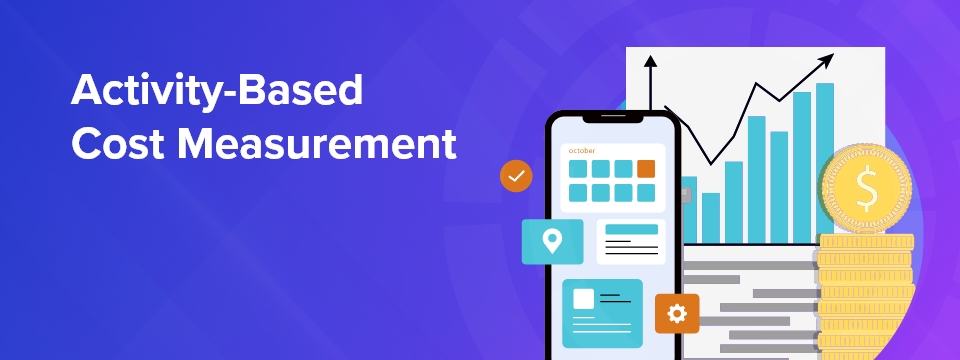
As a requirement for measuring productivity, every work in a factory must be calculated in order to determine how much effort is required for that work. That estimation is needed to determine how many employees to allot that work. Employees can have a mobile app to show they are working on a specific work. The app documents when they started and when they ended. The mobile app is also capable of verifying effort using its internal sensors which detect any movement of mobile devices in any direction.
That data is saved to the database instantly via a network connection and an activity-based cost measurement report is generated just in time. Measuring the start and finish of effort may be easy for one employee but when it arrives at a factory with 1000 employees or more, it becomes a pain unless the technology is implemented.
Paper works
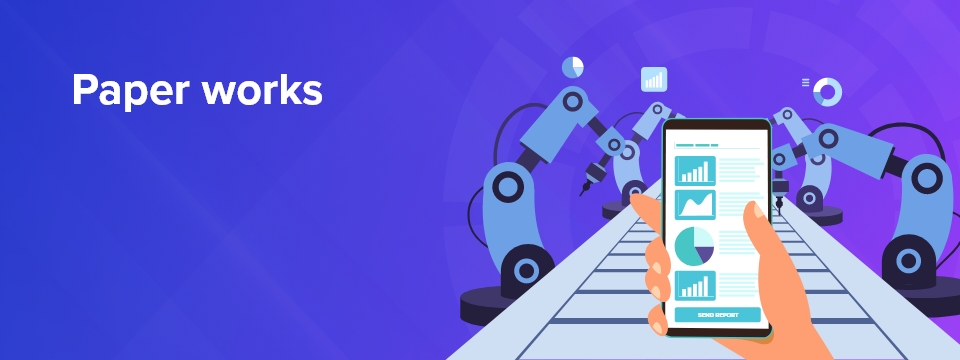
Paper works come in the first places of traditional ways. Because in an industrial world almost everything must be documented and reported daily. Engineers and foremen usually use notebooks and a bunch of paper to take notes and reports. Afterward, those reports must be typed again on a computer and saved to the database. That makes it hard to prepare reports and usually results in low-quality work. Besides that managers have to wait until the end of the day to view the reports.
But what if we replace all the papers and use mobile apps to save any required data in a factory? Imagine engineers using cell phones to record any important data. This data is saved to the database instantly via Wi-Fi or cell connection and reports are generated automatically. Whenever new data is saved, the system updates currently generated reports and managers are able to see reports whenever they want and wherever they are.
Talk to us to know more about the case study.
Optimum Manpower Utilization
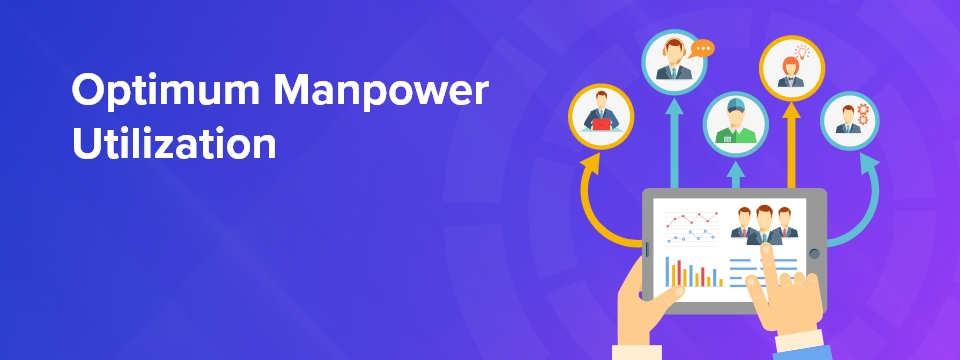
The process of delivering a shipment to the customer happens in different places. Such places include the cargo terminals of the airport or seaport, customs offices, clearing houses, and state borders. Apart from these, there are many other legal & regulatory checkpoints through which the shipment needs to pass before it can reach the actual customer. At all such places, the Logistics & Supply Chain company needs to deploy manpower to get the work done. With so many employees stationed across different locations, their management gains high importance.
Mobile Apps help in designing an integrated framework in which the different employees work simultaneously. These mobile applications help companies to manage their employees, and their tasks, and keep track of their location. At the same time, these applications also help the company in identifying unwanted employees and expenses so that it can work towards reducing its costs.
Visual Manuals
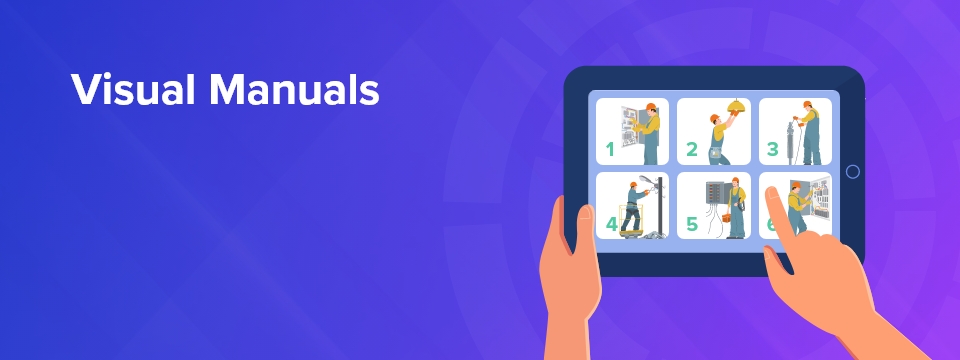
Adopting the industrial apps reduces the repeated, manual work, as well as eliminates paper-based manuals. The numerous versions of work instructions had brought you more defective items. The interactive, AR-based instruction via a mobile app guides the employee on how to use the tool at the assembly line. No detached theory and instructions can be updated in real-time. The employee works productively and makes fewer mistakes.
Enhanced Training

Managers get a picture of the workforce and training process through Mobile Apps. The training is important for the fresh employees, as well as those who’ve been working for some time. Introducing a new product, tool or process brings along a re-training course. A training app enhances the overview of the employee’s progress, behavior, and productivity. The learning doesn’t interrupt the factory workflow.
Reduce customer-service-cost
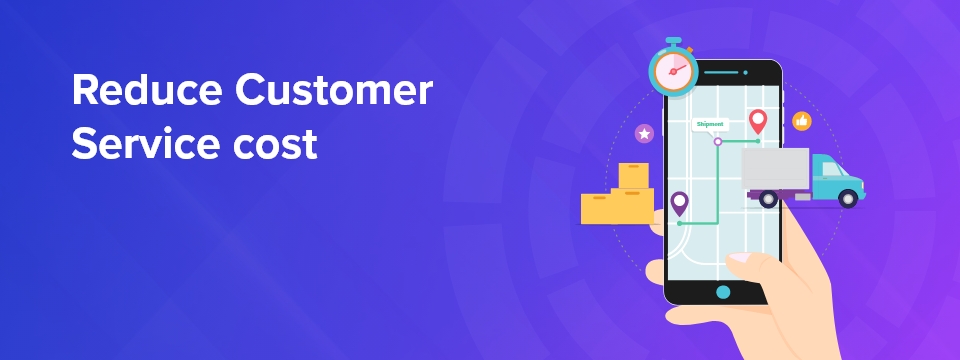
The use of mobile applications has impacted the cost of customer service of the companies in the Logistics & Supply Chain industry. With the use of technology-driven applications, the customer receives notifications about the status of the shipment on his mobile screen. So, he is no longer required to call the companies to ask about the status update. This lowers the number of phone calls. So the companies are not required to hire a 24/7 customer service team to answer customers’ questions.
Conclusion
The use of mobile applications in the Manufacturing industry is crucial. Its impact on the company’s long-term existence in a highly competitive market cannot be overlooked. But embarking on a mission to build the right mobile apps for your Manufacturing business can be an uphill task for most CIOs. This is where you need an able IT Partner to leverage a multitude of technologies and best practices to build performant and secure mobile solutions.
Talk to us at gleecus.com/contact-us